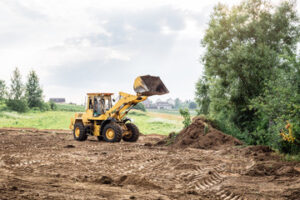Septic Tank Cleaning Perth is an essential part of septic system maintenance. Without it, your septic system may experience overflow and other complications.

Cleaning differs from pumping in that it focuses on internal tank rejuvenation. On the other hand, pumping goes a step further by completely evacuating liquid effluent and solid waste from every component of your septic system – think of it as hitting the reset button.
Clogged drains are part of life, but you can reduce the frequency of these plumbing emergencies by ensuring your septic tank is cleaned regularly. In addition, practicing preventative maintenance can help extend the lifespan of your septic system and reduce the need for costly repairs.
Clogs are not only frustrating, but they can also be dangerous to your family’s health. They are typically caused by a build-up of solid waste or a blockage in your septic system’s drain field, which is comprised of perforated pipes that carry wastewater out of your home to the leach field.
The septic tank is usually a large concrete box that attaches to your house’s outgoing pipes. Inside the tank, bacteria and yeast break down the waste that flows from your toilets. The solid waste settles at the bottom of the tank while scum floats on top. The sludge and scum are eventually flushed out into the septic system’s drain field, where they decompose naturally in the soil.
Although it may be tempting to use chemical drain cleaners like Drano to clear a stubborn clog, this is an extremely bad idea for your septic system. The ingredients in these products can kill off the bacteria in your septic system, which is essential for breaking down waste and preventing clogs.
If you are experiencing frequent clogged drains, it is time to consider scheduling a septic tank cleaning service. It is also important to monitor your home’s water usage, as too much water can overwhelm the system and force solids out of the tank before they have a chance to settle.
To help avoid clogs, be mindful of what you flush and consider installing a mesh drain strainer in your sinks and bathtubs to catch hair and other small debris. You should also keep yard waste, including branches and leaves, away from the septic tank, as well as avoid dumping anything into the drain field that could clog it.
A septic tank cleaning service can help you avoid these common mistakes, but if you are still struggling with slow draining or sewage odors in your home, call Lion Home Service today to schedule a septic tank inspection and septic tank cleaning. We can inspect your septic system, pump the tank when necessary, and offer advice on how to maintain your septic system to avoid future issues.
Eliminate Odors
The septic tank holds solid waste in the form of a layer of sludge and liquid wastewater, known as effluent. The septic tank’s outlet pipe distributes the effluent to your home’s drain field, which is comprised of a series of perforated pipes that allow the sewage to filter into the soil and naturally cleanse itself. However, if the septic tank overflows, wastewater and sludge can back up into your home through the drains and toilets. This is often accompanied by foul odors that can be difficult to eliminate.
Fortunately, there are many ways to eliminate these odors using household items like baking soda and vinegar. Baking soda is a natural deodorizer that can be poured down any drain or toilet about once a week to help maintain the proper pH level for the microorganisms that break down waste. This can prevent the formation of hydrogen sulfide gas, which gives off the notorious rotten egg smell.
Vinegar is also a great option to use as it has the power to break down buildup in your septic system without harming the helpful microorganisms inside the tank. Pouring a cup of vinegar down your drains can help clear minor clogs and prevent odors from forming in the home. Additionally, it’s important to avoid flushing non-flushable materials, including baby wipes, coffee grounds, and cigarette butts.
In addition to baking soda and vinegar, you can also purchase enzyme additives that help break down organic waste in the septic tank. These supplements can significantly reduce the frequency of cleanings needed to keep odors at bay.
Lastly, having a good water usage schedule can greatly extend the life of your septic system. However, this isn’t always enough to avoid costly repairs and replacements, especially if you have a larger system or a older one that requires more frequent cleanings.
Although septic tank cleaning and pumping are similar, they have distinct differences when it comes to equipment configuration. Septic tank cleaning uses specialized truck-mounted agitation nozzles and high-powered vacuum hoses to dislodge solid waste from just the septic tank. On the other hand, septic tank pumping involves bringing far larger vacuum pump trucks on-site to completely evacuate liquid effluent and solid sludge from every component of the septic system.
Maintain Your Home’s Value
Septic tanks are an integral part of your home, so maintaining them should be an important part of your routine. By scheduling regular tank cleanings, you can avoid costly repairs and ensure that your waste management system is functioning properly. By working with a professional service, you can also save yourself from the headache of trying to do it all yourself. A DIY approach may save you some money upfront, but the time and effort involved in researching septic system maintenance, buying or renting equipment, and performing the tasks can quickly add up. Professional services are affordable and ensure that the job is done right.
Keeping your septic tank clean can help you maintain the value of your home. The tank is a crucial part of your waste management system, and prospective buyers will be interested in learning about its history. They will likely want to know if it has been cleaned recently and how often it was used in the past.
A clean septic tank can prevent unpleasant waste odors from spreading throughout your house. It will also keep the waste from backing up into your pipes, which can lead to major damage. If you notice that there are foul waste odors in your home, call for septic tank cleaning immediately.
It’s easy to miss signs that your septic tank needs to be cleaned. Aside from the obvious odors, you may also hear gurgling sounds from your toilets or drains. This is a sign that there’s a blockage in the vent pipe, sewer line, or septic tank itself. Getting the tank cleaned regularly will help you catch these problems before they escalate into severe issues that require expensive repairs.
In addition to routine septic tank cleaning, it’s essential to have your septic system professionally inspected and maintained on a regular basis. A septic expert can determine the best time to clean your tank, and they can help you develop a schedule for routine maintenance. They can also provide you with educational resources about septic systems and offer a digital record management system to track all previous inspections and services.
Prevent Damage
Septic tank cleaning isn’t just about maintaining a well-functioning home plumbing system. It also helps keep the environment healthy. Without regular septic cleaning, harmful substances like sludge and liquid waste can leak from your home plumbing into the soil, groundwater, and nearby water bodies. This contaminates the drinking water that you and your family relies on to survive.
When septic tanks get overwhelmed with solid waste, wastewater has nowhere to go but back up into sinks, showers, and toilets. The best way to avoid these disgusting clogs is by regularly having your septic tank pumped. The process of septic tank cleaning removes the solid waste sludge from the bottom, leaving space for the liquid effluent that floats on top. Septic tank cleaning also involves scrubbing the interior of your septic tank and removing any floating material that could block the outlet pipe.
To reduce your risk of having to call a professional for septic tank pumping, follow these tips:
Never Flush Trash or Rubbish Down the Drain: This includes cigarette butts, diapers, baby wipes, and feminine care items. These items are not only harmful to the bacterial ecosystem of your septic system, but they can also contaminate groundwater and cause serious illness in your family.
Use Non-Chemical Septic Tank Cleaners: This is especially important if you have small children or pets in your home, since chemical cleaners can kill the waste-eating bacteria that help to keep your septic system functioning properly. If you must use a chemical product, be sure to find one that is labeled as safe for septic systems.
Stagger Your Water Usage: This means taking shorter showers and washing machine cycles, and only running the dishwasher when necessary. Water conservation protects your septic system’s microbial ecosystem, extends maintenance intervals, and benefits the local drinking water supply.
Look for Warning Signs: Wet spots, surfacing sewage odors, and lush vegetation growth near your septic system are all signs that it’s time to call for septic tank cleaning. These issues can indicate that your septic tank is reaching its maximum capacity and may soon be overflowing.

